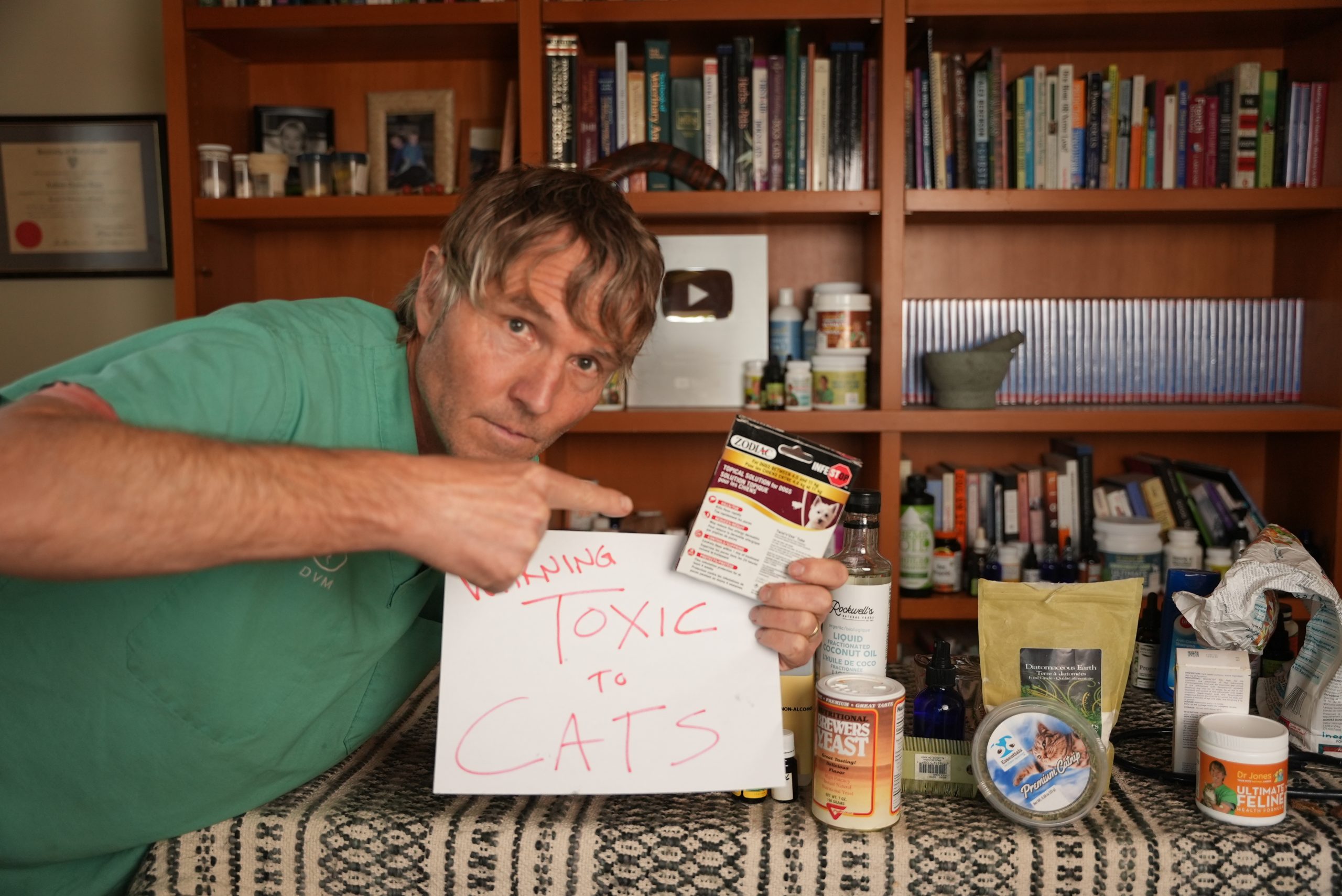WHY Flea Meds Are Harming Your Cat? Safe Alternatives Revealed!

Are Flea and Tick Medications Toxic for Cats? What You Need to Know
Do you know that common flea and tick medications can be seriously toxic to your cat? In fact, flea medications top the list of toxins reported to poison control centers for cats. In this article, I’m going to show you how to avoid these serious complications and introduce you to safe, effective alternatives for your feline friends.
Webinar Invitation: Cat Health and Nutrition
Before diving into flea medications, I want to invite you to a special cat health and nutrition webinar I’m hosting. In this webinar, we will cover:
- What food is best for your cat
- My top commercial cat food recommendations
- Home remedies for common feline health issues such as urinary tract disease, diabetes, kidney disease, and liver disease
- What human foods are toxic to cats and should never be fed
- The best vaccine schedule for cats
- Natural parasite control and what you can do about cancer in cats
The webinar will take place on Tuesday, October 22nd, at 5:00 PM Pacific. Click the link below to sign up!
The Dangers of Common Flea and Tick Medications
Flea and tick medications sold in big-box stores can seriously harm your cat. During my time in practice, I saw many cats poisoned by these topical flea medications. In some cases, people mistakenly used dog flea treatments on cats or applied too much of the medication, thinking a smaller dose would be harmless. But even flea treatments specifically meant for cats can cause toxicity.
Cats metabolize drugs differently from dogs. When a cat absorbs flea medication, either through the skin or ingestion from grooming, they can develop severe symptoms such as:
- Drooling
- Neurological signs like trembling or seizures
- Difficulty walking
- Agitation
- Vomiting and diarrhea
- In severe cases, coma or even death
For these reasons, you need to be extremely cautious with flea meds for cats, especially the topical ones.
Safe and Effective Alternatives for Flea Control
1. Flea Comb: The Simple and Safe Option
One of the safest and easiest methods for flea control is using a flea comb. Regularly combing your cat’s fur can help you spot and remove fleas, along with flea dirt (flea feces). It’s inexpensive, chemical-free, and highly effective.
2. Catnip: Nature’s Flea Repellent
The essential oil in catnip, nepetalactone, has proven flea-repelling properties. Isn’t it amazing that something your cat loves can also keep fleas at bay? Catnip is completely safe for cats, so sprinkle it around the house or on your cat’s fur.
3. Brewer’s Yeast: A Natural Flea Repellent
Brewer’s yeast is rich in B vitamins, essential minerals, and chromium. When given daily, it can help repel fleas naturally. While it won’t be as effective as chemical flea medications, it’s a great way to keep fleas under control without toxins. Start with ¼ teaspoon of brewer’s yeast on your cat’s food twice a day.
4. Diatomaceous Earth: A Natural Flea Killer
Diatomaceous earth is made from the skeletons of tiny sea organisms and works by drying out the exoskeletons of fleas. Sprinkle it in the cracks and crevices of your home or lightly dust your cat’s fur. Use it sparingly, as it can dry out the skin, but it’s an effective, safe flea insecticide.
5. Homemade Flea Spray: Easy, Safe, and Effective
You can create a safe flea spray for your cat using natural ingredients:
- Witch hazel with aloe: Soothing for the skin and helps repel fleas.
- Liquid coconut oil: Known for its flea-repelling properties, coconut oil is 100% safe for cats.
- Neem oil: A natural insecticide, neem oil should be used in a very diluted form (1% or less) to ensure safety for cats.
- Lavender essential oil: In small quantities, lavender oil helps soothe the skin and repel fleas. Keep the concentration below 0.25% to ensure it’s safe for cats.
Mix ½ cup of witch hazel, ¼ cup of liquid coconut oil, 2 ml of neem oil, and 10 drops of lavender oil. Pour the mixture into a spray bottle and lightly mist your cat once a week, followed by a flea comb to distribute the solution.

Protect Your Cat from Toxic Flea Medications
By incorporating these natural methods, you can protect your cat from fleas without resorting to toxic flea medications. Regularly comb your cat, introduce natural flea repellents like catnip and brewer’s yeast, and consider using diatomaceous earth or a homemade flea spray.
If you want to learn more about keeping your cat healthy naturally, I encourage you to sign up for my upcoming free cat health webinar. We’ll cover nutrition, natural remedies, and much more. Click the link in my bio to sign up. Also, don’t forget to subscribe to my channel and hit the bell for notifications!


